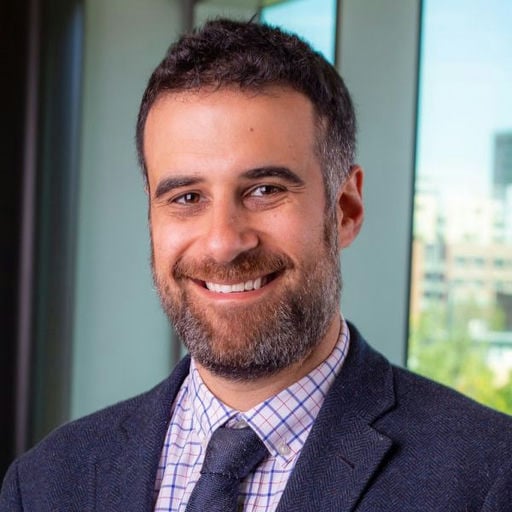Breast cancer claimed 42,863 lives in the US in 2021, but early detection can improve survival rates and reduce the financial, physical, and mental burdens of treatment. Access to screening varies significantly across counties, influenced by local health-care infrastructure and economic conditions.
This report examines disparities in screening capacity, using the number of mammography facilities per person as a proxy for detection quality. Counties with greater capacity report higher rates of breast cancer detection, with more cases caught at earlier stages and longer average survival times. Conversely, areas with higher poverty levels and lower female health insurance coverage tend to have fewer screening facilities, leading to later-stage diagnoses and worse outcomes.
Our simulations show that improving detection in low-capacity counties could identify 17,804 undiagnosed cases and increase early-stage detection by 12.6 percent. These improvements could also reduce treatment costs by an estimated $176 million, as early-stage cases are less expensive to treat. Enhancing screening technology, particularly in underserved areas, offers the greatest potential for reducing disparities and improving outcomes.

Andrew Friedson

Bumyang Kim

Katherine Sacks
Related Content
-
Where the World Connects: Milken Institute Global Conference Combines the Power of Convening and the Power of Ideas
LOS ANGELES — For the 19th year, the Milken Institute Global Conference will bring together leaders who drive change. From May 1 through May 4, more than 3,500 people from 55 countries and 45 states will gather for discussion across 11...Read Article -
Advancing Clinical and Translational Science Through Accelerating the Decentralization of Clinical Trials
Submitted electronically Joni Rutter, Ph.D. National Center for Advancing Translational Sciences National Institutes of Health 6701 Democracy Blvd Bethesda, MD 20892-4874 Dear Director Rutter, FasterCures, a center of the Milken Institute...Read LetterImage
Esther Krofah
Executive Vice President, Milken Institute HealthEsther Krofah is the executive vice president of Milken Institute Health, leading FasterCures, Public Health, the Future of Aging, and Feeding Change. She has extensive experience managing efforts to unite diverse stakeholders to solve critical issues and achieve shared goals that improve patients’ lives. -
Health and the Gender Gap
In this discussion paper on social and regional factors in well-being, Milken Institute Health Economist Ken Sagynbekov examines gender-based health disparities across U.S. regions. He assesses the role of social and economic influences on...Read Report -

Learning from COVID-19: Reimagining Public-Private Partnerships in Public Health
The Milken Institute Center for Public Health leveraged our network of thought leaders to maximize learnings from the COVID-19 pandemic, focused on examining the private sector’s role and responsibility in supporting public health. This...Read Report -
Request for Information on Gene Therapy Access – US Senate HELP Committee
Submitted electronically The Honorable Bill Cassidy, M.D. Ranking Member Committee on Health, Education, Labor & Pensions United States Senate Washington, DC 20510 Dear Ranking Member Cassidy, On behalf of Milken Institute FasterCures, we...Read Letter -

Prescription for Biomedical Innovation: Recommendations for the New Administration
FasterCures has long been at the forefront of shaping the national focus on biomedical innovation, with a singular goal of saving lives by accelerating scientific advances for all patients. FasterCures has been instrumental in advocating...Read Report -

Milken Institute Global Conference Scheduled for October 17-20, 2021
Los Angeles – April 15, 2021 – The Milken Institute Global Conference, an annual convening of global leaders in government, finance, health, academia, and philanthropy, will take place this fall from October 17-20, 2021 at The Beverly...Read ArticleMilken Institute Global Conference Scheduled for October 17-20, 2021
-
Patient-Reported Outcomes: Design with the End in Mind
“What outcomes matter to patients?” This question is asked at nearly every meeting in biomedical R&D and health care. As FasterCures has documented over the years, there is a big change afoot to place patients in the center of medical...Read Report -

America's Obesity Crisis: The Health and Economic Costs of Excess Weight
This study calculates the prevalence and economic effects of diseases related to obesity and overweight in the United States. These costs are paid by individuals and their households, employers, government, and society. The prevalence of...Read Report11 11Hugh Waters and Marlon Graf -

Food and Agriculture in Asia: Investing in Resilience, Health, and Sustainability
As the world reels from multiple crises in rapid succession, the opportunities to set food systems on a more sustainable and equitable path have never been more favorable, and in turn, the importance of multi-stakeholder convenings cannot...Read Report -

2024 Policy Priorities and Solutions
We advance our policy priorities through government engagement, independent research, and convening global leaders in finance, health, government, and philanthropy to discuss challenges and opportunities facing the world.Read Report -

New Report by the Milken Institute Details Innovative Financing Solutions to Reinvent Preventative Healthcare in the United Kingdom
27 January 2024 (London, UK)—With a shift towards preventative healthcare needed by both the National Health Service (NHS) and the new United Kingdom (UK) government, innovative financing solutions are critical to ensuring the...Read ArticleImage
Paul Guequierre
Director, Strategic CommunicationsPaul Guequierre is the director of strategic communications. In this role, he works to increase the profile of Milken Institute in the media, raise the visibility of issues important to the organization and its stakeholders, and expand the Institute's digital presence.





